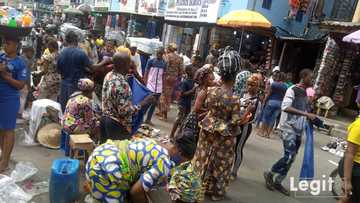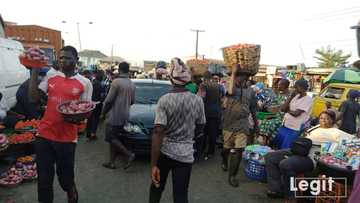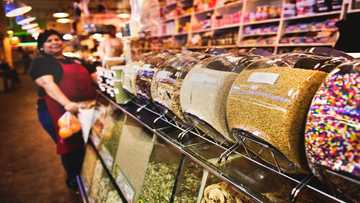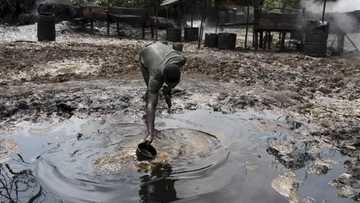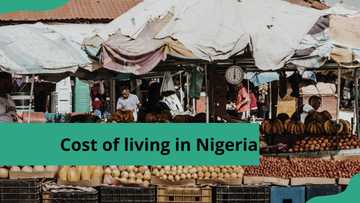Legit.ng weekly price check: Traders reveal present situation in Lagos market after blockade
- Food prices in Lagos market dropped, few days after northern food dealers lift the ban on food supply to the south
- According to findings by Legit.ng, food items that were very scarce and expensive have become very affordable and available
- Legit.ng this week, had a chat with some traders and they shared the difference in the cost price of goods after the ban was lifted
- They lament over low patronage despite the affordability of the items
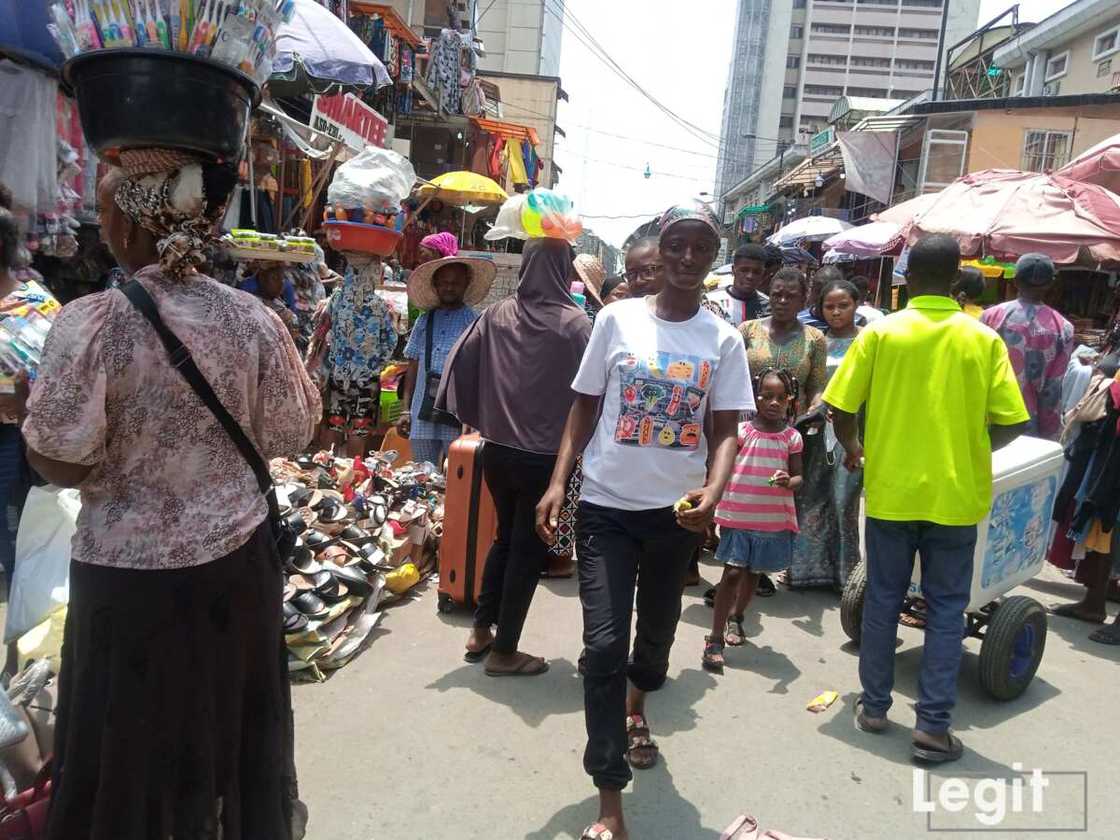
Source: Original
Just days after northern food dealers lift the ban on food supply to the south, prices of some goods dropped further. The food items that were scarce during the period in which the strike was ongoing, have become available.
At the market this week, findings by Legit.ng showed the affordability of perishable goods, increment in the cost price of others while foodstuffs maintained stable prices.
Prior to this period, the cost price of some goods in the market increased and others scarce due to the blockade of supplies from the northern region of the country to the south.
During this time, there was hike in the cost price of perishables, beef, vegetables especially tomatoes and pepper while onion was very affordable. It was really tough as sellers’ lament over shortage in supply of the goods and increased demand.
Well, things took a different turn when the strike was called off, ban lifted and there was huge supply of goods and drop in their cost of purchase now.
In a chat with some traders at the market this week, Legit.ng sought to find out how things are in the market after the union shelve the strike.
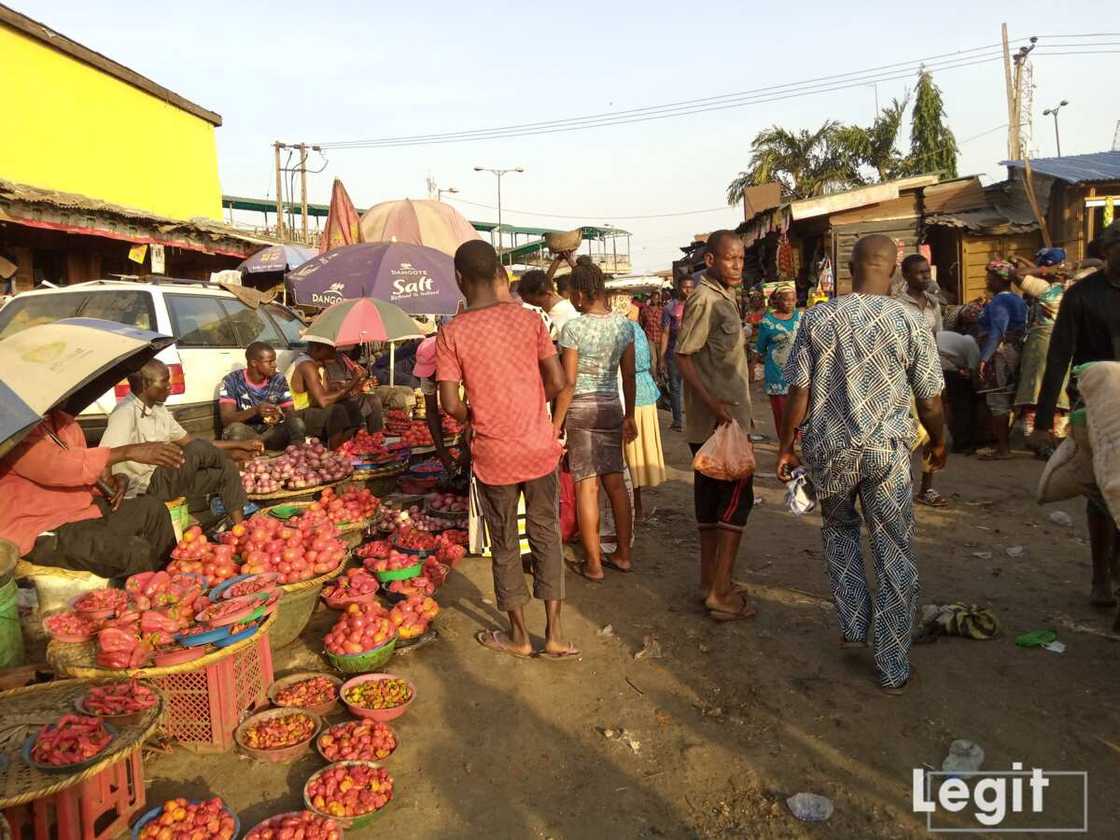
Source: Original
A perishable dealer at the market revealed there has been positive development in the supply of goods; adding that it brings about availability of the goods and reduction in their cost of purchase.
“During the period the strike was ongoing, a basket of tomato was sold from N45,000, and pepper from N20,000 upwards. In fact, some sellers’ ran out of supply and couldn’t afford to sell to their main customers because the demand became so high on the part of traders’ and buyers’ as well.
“The buyers’ want to purchase the items for consumption, the traders need the items to be supplied to them in order to keep their business running. Both parties are in dire need of the items but it became very scarce and the available ones were sold at exorbitant prices.
“Sales was affected to an extent as there was a drop in the quantity of goods purchased and this is not good for our kind of business; because if you don’t sell the goods on time, you will end up at a loss.
“Going forward, after the strike was called off, the cost of purchase of these goods dropped and their supply increased. This led to a drop in the cost price of the goods in the market now.
“A basket of tomato can be purchased from N5,000 upwards same with pepper even as onion is also affordable. It’s a good development and we are glad because we would also suffer from the impact of the blockade as business owners if nothing is being done by appropriate authorities as,” A tomato dealer at the market informed.
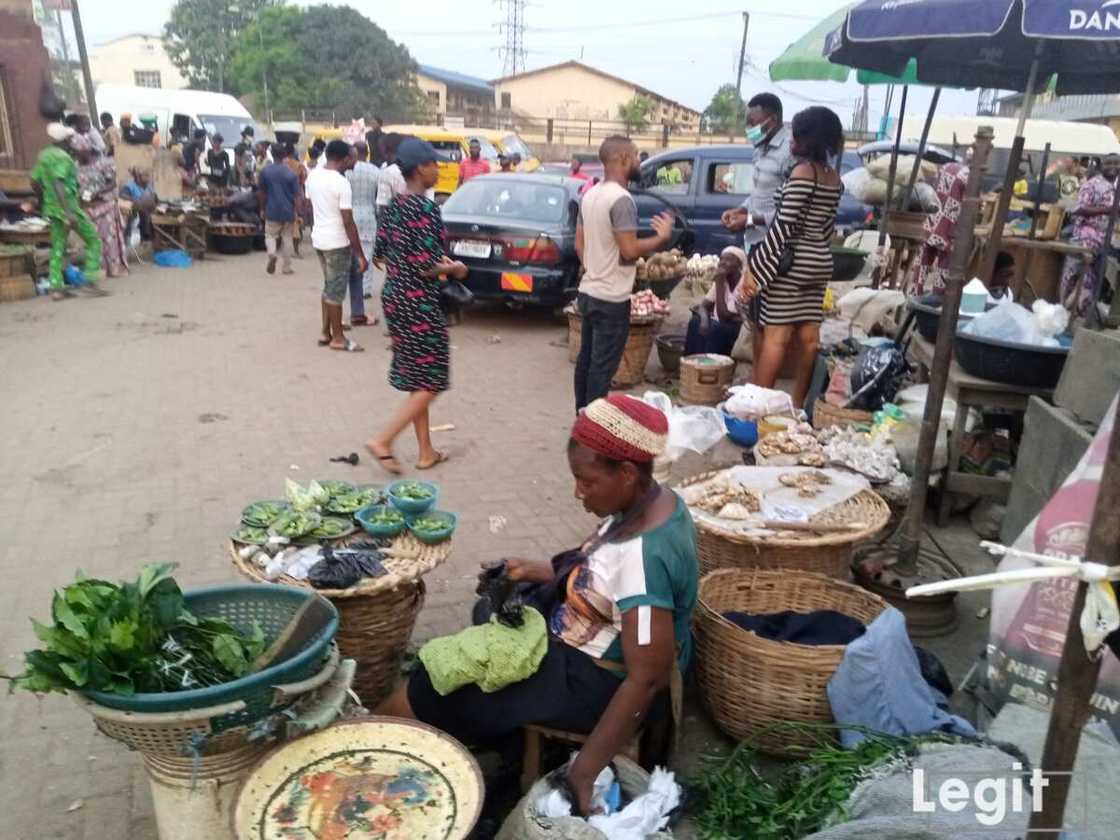
Source: Original
A trader who sells vegetables at the market revealed to our correspondent that the blockade did not inflate the cost price of vegetables rather the season.
She said: “Not all goods are purchased from the North but most goods especially food items in the country, comes from the north and some factors influence the cost price and availability of these goods. Vegetables vary and some are not purchased from the northern part of the country while others are.
“For vegetables like pumpkin leaf, 'ugu' and others used in preparing delicious soups, are purchased from neighbouring states closer to markets in Lagos, and the weather condition as well as seasonal factors determines its availability and cost price; most of the vegetables they use for salad are purchased from the north and neighbouring countries.
“Presently, vegetables are a bit expensive but the ones in season are very much affordable and available. Seasonal factor is the main issue as soon as it starts to rain now, they would be grown and harvested in few months from now and would become very affordable and available. A bag that we purchase from N2,000, N3,000 have increased to N5,000 upwards and sometimes they are not available at the places we visit for purchase.”
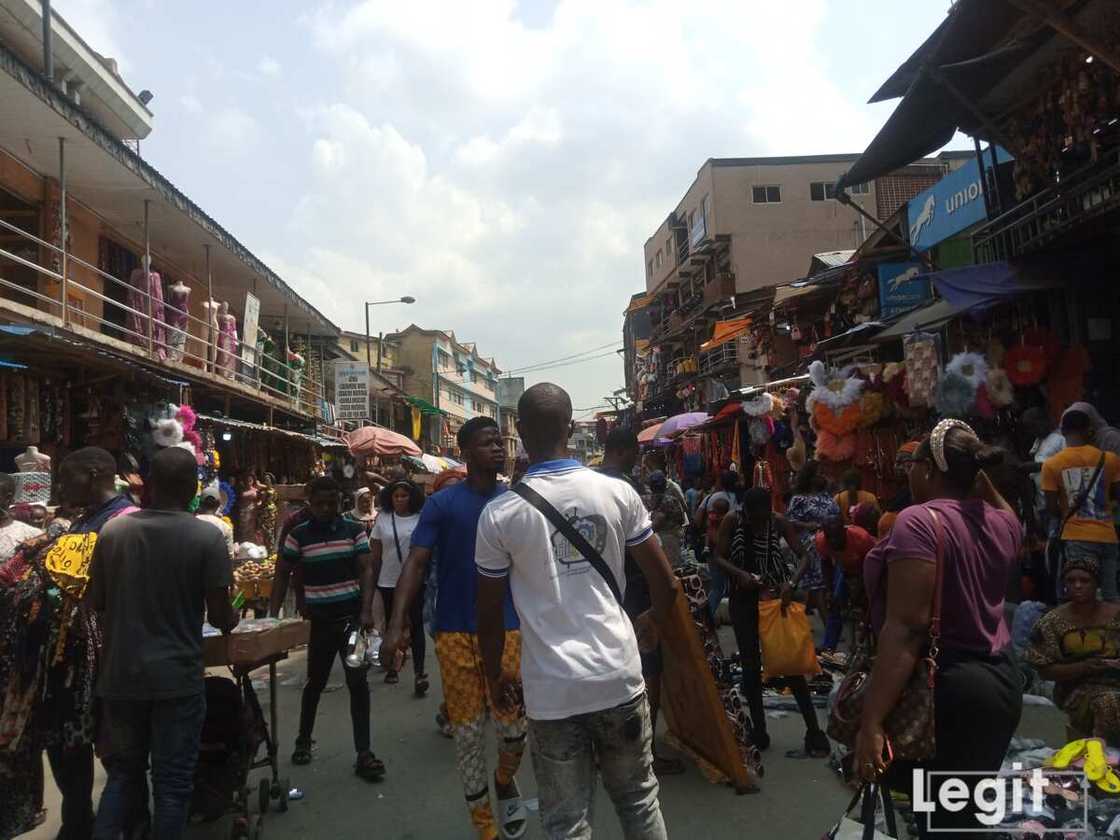
Source: Original
Interestingly, both sides were affected by the strike. As food prices soared in the south, farmers and business owners in the North lament low patronage. As some revealed further, a huge drop in the cost of purchase of the goods that were very expensive before the blockade.
A trader who sells pepper and onion at the market revealed the affordability in the cost price of onion in the market now. According to him, now that some goods are available and cost price reasonable, patronage drops further.
“Before the blockade and during the blockade, here in the market onion was very expensive but immediately after the blockade, the cost of purchase for onion dropped and the cost price became very low.
“A bag of onion that was sold from N40,000, N60,000 and N80,000 upwards dropped so low to N15,000 N10,000 below now. In fact, the supply is very high in the market now. During the blockade, the goods were getting bad and this is affecting the farmers in the North hence, they had make a U-turn and quickly welcomes the calling off of the strike. This then made the supply of the item very high and the cost of purchase low as well.
“But the sad reality now is that, despite the affordability of the items in the market, we are not making good sales. It is so bad that you can easily count the number of buyers that come to the market; on daily basis, they come, the market is busy but the sales volume very low. This is not helping our business and we are not happy with the situation of things in the country. It is very sad because we are just trying to survive in the country,” A trader who hails from the northern part of the country complained.
One major factor that influence the cost price of goods conveyed from the north to other part of the country is the money spent by suppliers to security operatives on major highways. This issue has become so pronounced as traders are frustrated over the impact of this act carried out by security operatives.
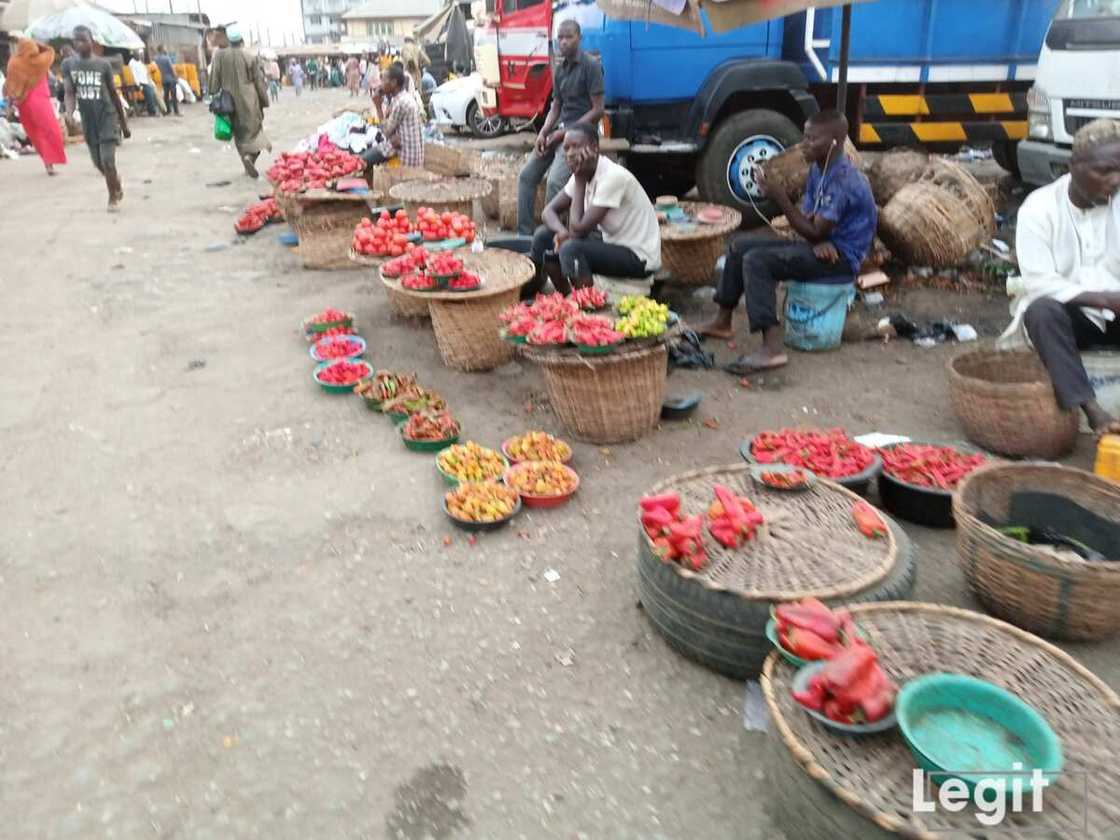
Source: Original
Reacting to this, a trader at the market, said it affects to a large extent the quantity of goods supplied to traders in the market and influences the cost of purchase. Adding that suppliers and distributors include this cost to the cost of goods being supplied into the market.
He said: “The way security operatives extort money from suppliers and distributors bringing goods into the market here is alarming. It is not a thing to be proud considering the present situation we are all faced with in the country. Suppliers pay a lot of money on every highway they get to on their way to supply goods to the market. It is becoming unbearable for us as it determines also the cost of purchase of the goods, they are supplying to us in the market.
“Onion is very cheap in the market now same with pepper and tomatoes with other goods supplied from the North but the patronage is very discouraging. There is no money, we manage to get the goods yet, after the purchase, we end up not making good profit. It is very difficult for us as business owner to survive with this kind of situation we are in now.
“Due to the low purchasing power of buyers, I was unable to purchase onion this week, as I do not want to run into more debt because if we do not sell the goods on time, they get rotten. I only purchase pepper this week; even the pepper, have not made enough sales from it. We are pleading with the government to make the country’s economy better, so the people can have more resources and cash in hand to patronize us. this is why some people do certain things that are irritable to the eyes, for survival. It is not easy at all.”
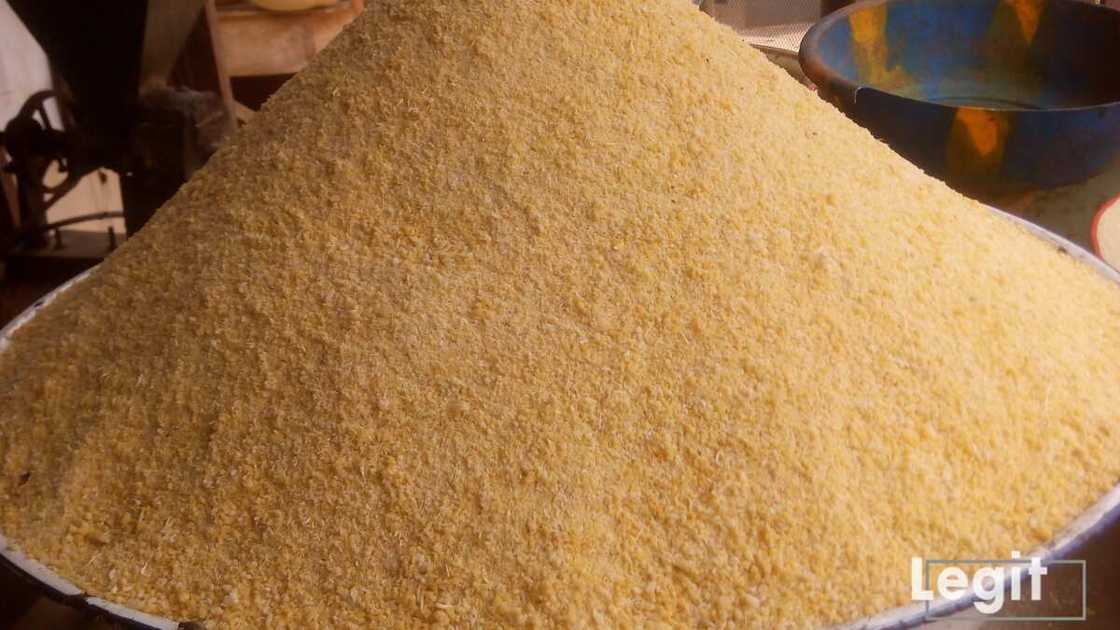
Source: Original
In another development, the cost price of garri and beans have risen drastically. A dealer at the market in a chat with our correspondent, told Legit.ng that the cost price of beans rises daily while garri witnessed about five percent increment in its cost price.
The trader expressed dissatisfaction over the continuous rise in the cost price of some goods in the market.
He stated thus: “The cost price of food items like beans, garri and rice same with foodstuff items like ogbono, egusi, crayfish and dry pepper, were not affected by the blockade rather the security issues in the northern region of the country continue to affect the activities of the farmers thereby resulting to the rise in the price of some goods lately.
“For beans, some said it’s the planting season hence the available one is not enough to go around, making it very expensive now, others informed that the insurgency will continue to affect activities of both farmers and suppliers who convey their goods from the northern region of the country to the market here; this makes the cost of purchase in recent times very high.
“Presently, the cost price of beans is offered for sale at N55,000 upwards per bag. And this week, the cost price of garri increased as a paint bucket is sold from N1,100 upwards depending on the market visited and the type of garri purchased as some traders sell theirs higher than this and a bag is sold from N13,000 and N14,000 upwards. But there is stability in the cost price of rice, ogbono, egusi, pepper and crayfish.
Similarly, the fluctuation in the foreign exchange rate has led to the increment in the cost price of some goods that were imported into the country. Goods like bags, quality shoes, wristwatches and jewelry as well as other fashion accessories become more expensive.
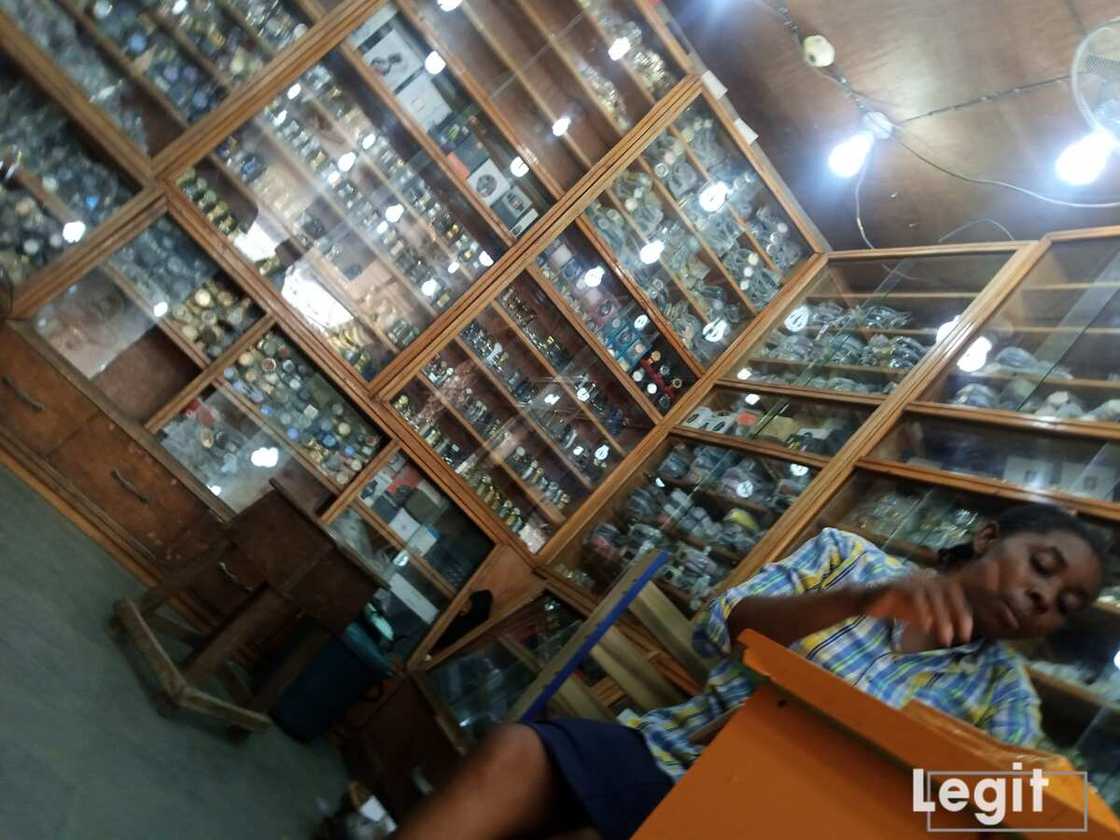
Source: Original
A wristwatch attendant at the market, told our correspondent that the cost of importing goods from neighbouring countries like china, have increased drastically. Adding that the cost of items they sell now increased by over ten percent.
“Imported goods are very expensive now and the ones purchased in neighbouring countries and within the country, their quality dropped in recent times. The cost of purchase of wristwatch now is over ten percent compared to their previous prices. Now it’s worse, as sometimes, we purchase the goods, a carton might not be working well, we then result to a loss due to the demand and supply level of the items.
“Wristwatches that were sold from N2,500 and N3,000 in previous months, have increased to N4,000 and N5,000 respectively while the ones whose leather or chain are of low quality are sold from N2,500 and below. They are not durable but are fashionable.
“Now, if you want to purchase fashion accessories, you have to consider the quality and durability, the brand or model of the item as well as the material used because they often influence the cost of purchase in any store you walk into. The beautiful thing is that we offer our items here for sale at wholesale prices but business is really dull and sales not like before but we are hopeful of better sales as Easter celebration approaches,” The attendant told Legit.ng.
With rising inflation rate in the country, at the market generally, the cost price of most goods has become very expensive while the cost price of others fluctuates; this is the present market situation in the state as traders hope for better sales ahead of Easter celebration.
INTERVIEW: Can N5000 feed a Nigerian family for a month? via Legit TV
Source: Legit.ng


